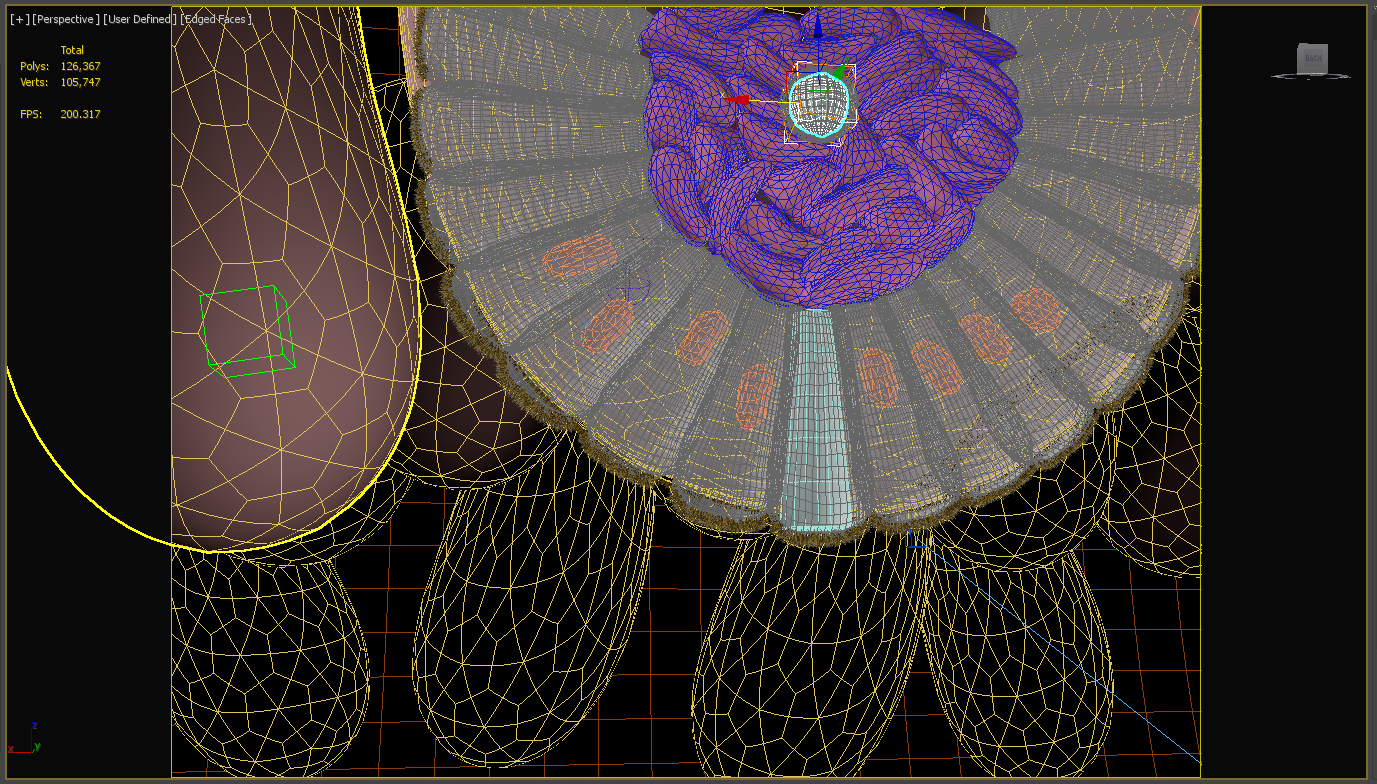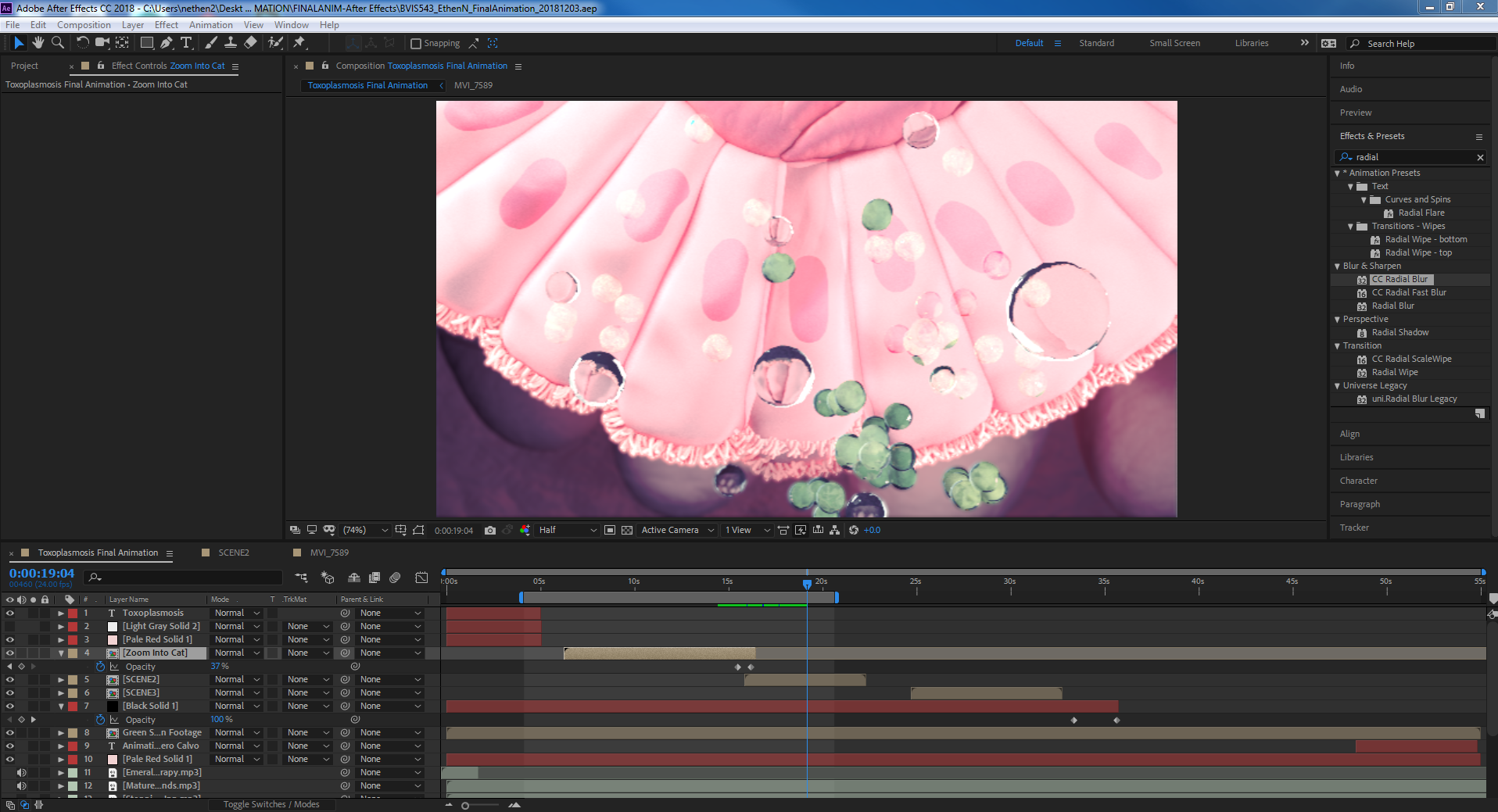Title
Toxoplasmosis
Audience
Biology undergraduate students
Client
Kevin Brennan and Rex Twedt of UIC Biomedical Visualization Program.
Media
Autodesk 3ds Max, Adobe After Effects, Adobe Photoshop, green screen & camera
Year completed
2018
PROCESS
Script, Organization Chart, & Storyboard
Multiple iterations of scripts were created to fit the educational content into the short 45 second requirement for the animation. An organization chart, like the one shown here, helps map out the key concepts and visual hierarchy that the animation will follow. A storyboard is then created to visualize frame-by-frame how the animation will progress as well as give directions for camera movements, narration, and special effects.
3d modeling, animating, & TEST RENDERING
Following creation of animatics and animated storyboards to test for timing, 3D models and other assets for the animation are created. After animating, render tests will help understand what’s working and what needs tweaking in the animation. This is a very iterative process and helps to get a sense of the final movements in the animation.
refining the 3d models and animation
When modeling for animation, the scene has to look realistic without using too much complex geometry. An animation can break or have trouble rendering if there are too many polygons in the scene.
Adding lighting and materials
Lights and materials give life to the animation and really alter the look and feel of a piece. Many of these color decisions are made early on in the storyboard and organization chart stage. This step also has some flexibility as lighting can be changed to highlight certain points of interest in the animation.
CATS ARE FUN AND CHALLENGING TO CAPTURE
The animation ultimately relied on the cats doing something interesting that was capable of being captured without the green screen in After Effects. These cats thought I gifted them a giant green jungle gym.
Adding Illustration overlays
Once reasonable cat footage was obtained, illustrations needed to be created to give a sense of anatomy and location for the animation taking place. For this scenario, the importance was for the audience to recognize that the small intestine was the location the animation was zeroing in on.
COMPOSITING AND RENDERING
Finally, all the scenes have been rendered out of 3Ds Max and can be composited in After Effects. A lot of time is put in at this step to take the animation from 95% to 100% complete.





